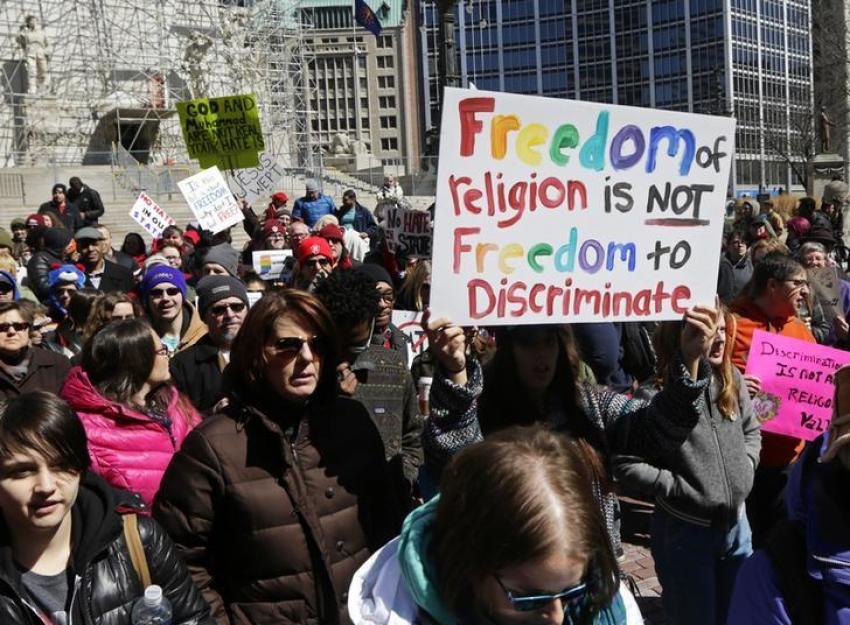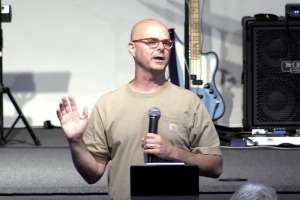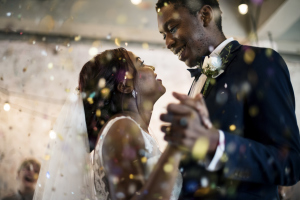'Sex over religion': Legal scholars discuss America's shifting religious freedom landscape

Legal scholars discussed Monday how the religious freedom landscape is shifting in the United States and voiced concern about the impact of the nation's increasing religious disaffiliation on the First Amendment.
The Washington, D.C.-based Religious Freedom Institute hosted a virtual panel event on Monday titled “Religious Liberty: Where We Are and Where We’re Going."
Religious freedom legal experts were invited to discuss the progression that led to the current state of religious freedom in America and how it has been shaped through recent decades. The discussion was the inaugural event for RFI’s “Courtrooms to Classrooms” series.
Religious Freedom Institute Senior Fellow Andrew Graham moderated the discussion. Featured speakers were U.S. District Judge Matthew J. Kacsmaryk of the Northern District of Texas and James A. Sonne, a law professor and director of Religious Liberty Clinic at Stanford Law School.
Kacsmaryk, appointed to the federal bench by former President Donald Trump in 2019, said multiple factors have contributed to the legislative shift in religious freedom over the last 20 years. One of those factors, he said, is how the Democratic Party has morphed over recent years. The party was once seen as a haven for religious minorities.
“Within 30 years, the [Democratic Party], which had always been a sanctuary for religious minorities and those among persecuted religious groups, went from enacting and pushing the Religious Freedom Restoration Act in 1993 to at least sponsoring legislation [in 2019] that would expressly restrict the application of the Religious Freedom Restoration Act," the judge said.
“[You] see this in the 2019 Equality Act and No Harm Act, which are both sponsored by Democratic leaders,” he continued. “I think this cultural move toward religious disaffiliation is most pronounced in one of our major national parties, which had always been a sanctuary for persecuted religious minorities. So, I think this, in part, explains why there is maybe less support for religious liberty as a general principle.”
Kacsmaryk also referred to a Gallup Poll from March that showed how religious membership dipped below the majority of the population for the first time in the poll’s recorded history.
There has also been a rise in religious “nones,” or those who do not adhere to any religion.
This points to the recent legal and legislative trends away from religious freedom since “law flows downstream from politics and politics flows downstream from culture,” Kacsmaryk added.
Another cause of the decrease in national religiosity resulted from the sexual revolution that began in the mid-20th century, the judge contended.
This “affected an evaporation of religious consensus,” he asserted, suggesting that a cultural upheaval led to the effective deregulation of sex.
“When combined, the sociological, theological and theoretical factors generate a culture that is focused on expressive individualism, self-definition and therapeutic affirmation. It combines to create a politics that prioritizes expression over free exercise, prioritizes sex over religion and safe spaces over debate and dialogue,” Kacsmaryk stated. “And finally, in the law, you see a shift in emphasis away from hard rules of damages, case and controversy. … You see this reflected in recent Supreme Court cases.”
The judge argued that traditional Abrahamic religions will become harder to explain to courts and legislatures as these beliefs continue to fall “outside the mainstream.”
Sonne, who established a legal clinic at Stanford to serve individuals with religious freedom concerns, cited various Supreme Court cases in past years involving freedom of religion, including the Little Sisters of the Poor case against the Obamacare contraceptive healthcare mandate.
Sonne said there has been a recent trend of religious liberty being diminished in the name of equality. Despite the pushback against certain areas of religious liberty in recent years, he remains optimistic.
“Really remembering the human, remembering what this is all about,” Sonne said. “What is religious liberty and religious freedom all about? And it’s different than those substantive questions."
"My concern is that those disputes, though they are important in their own right, will overwhelm and we will forget what religious liberty is truly about, which is again, human beings trying to live, work, survive and follow the law as best they can, and be good citizens in a way that’s true to themselves as human beings and most importantly exercise their faith," Sonne stated. "And so, to honor that and to really try and work together for a principled pluralism.”
“I am optimistic that that work can be done,” he assured.



























